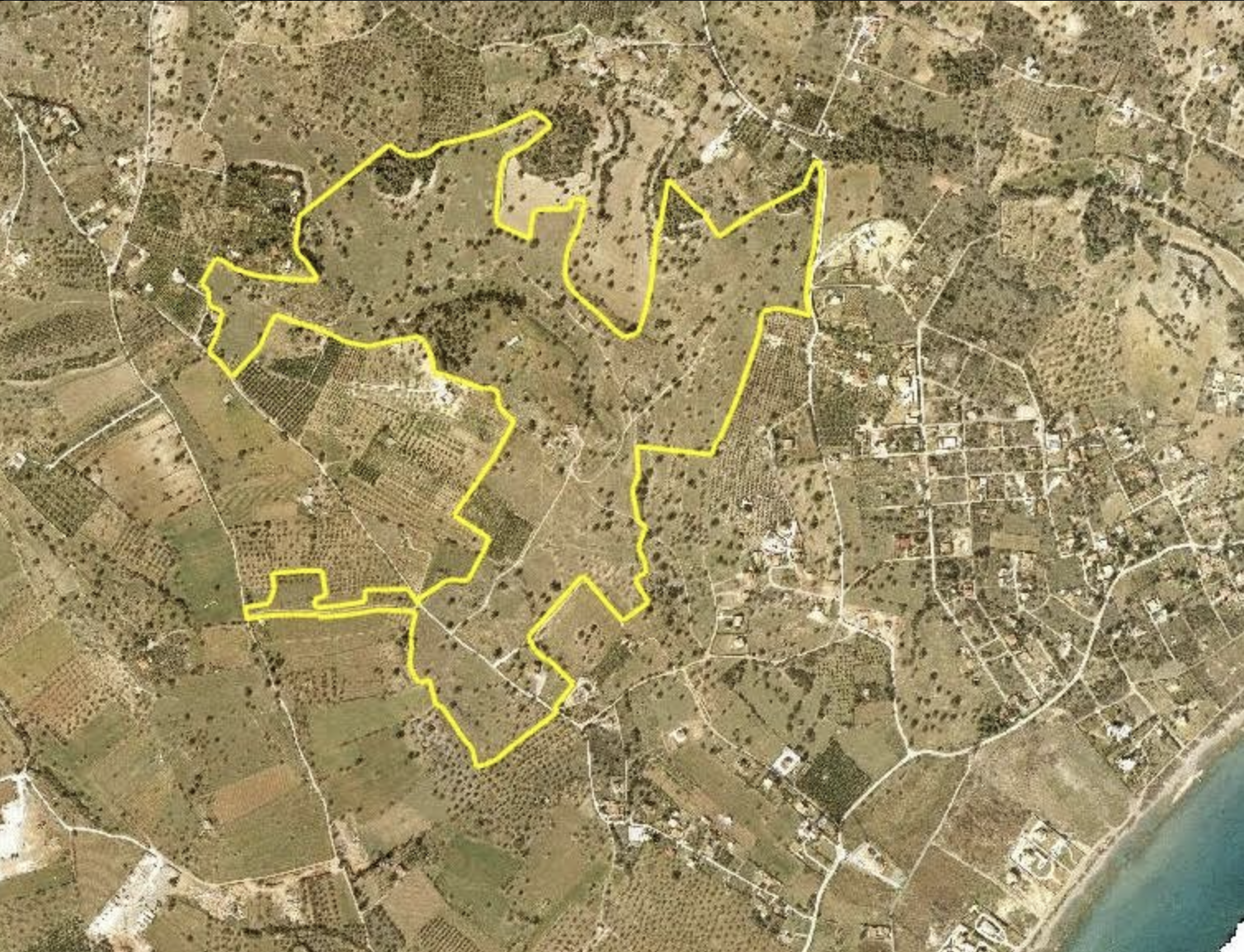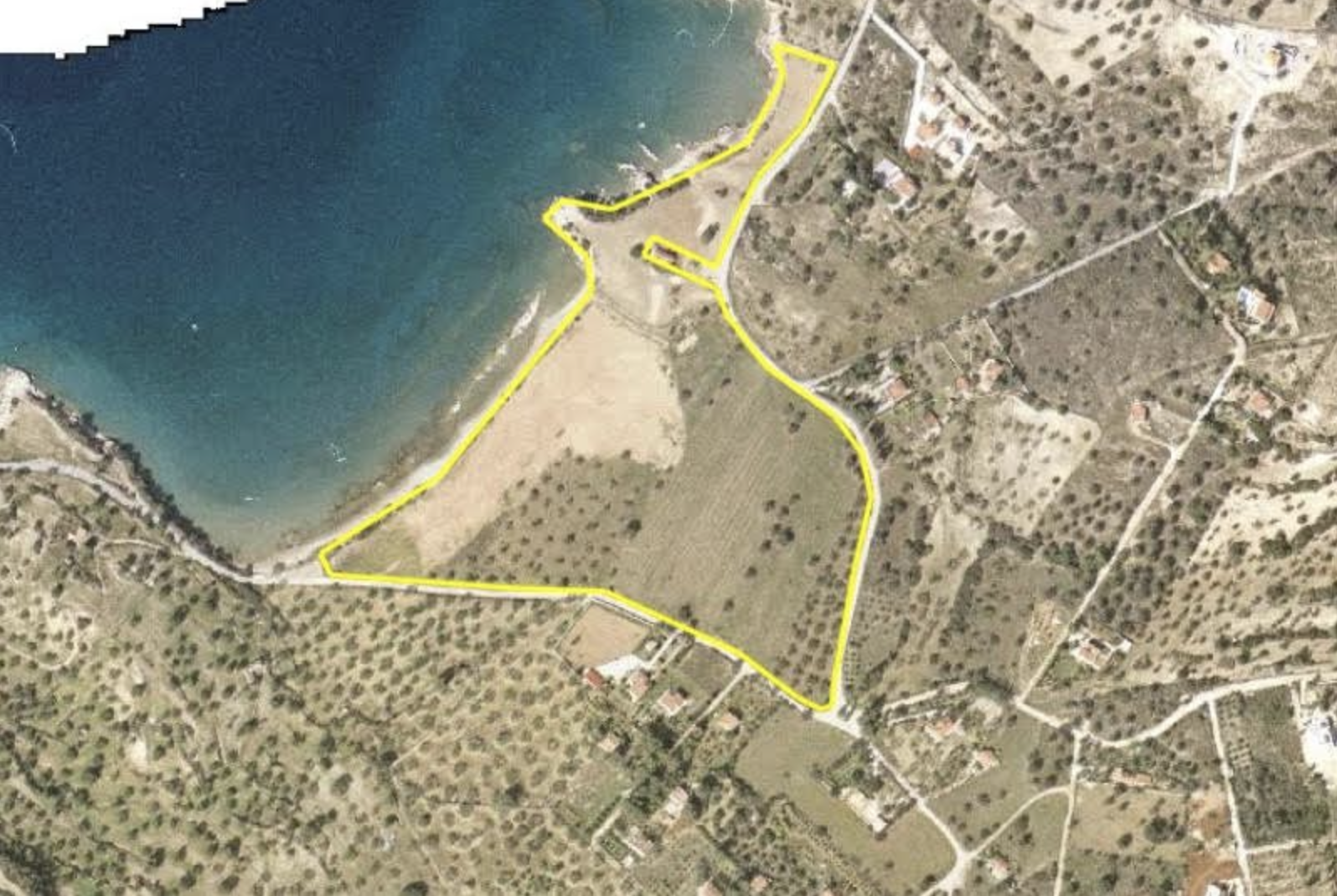Porto Heli is on the so-called “Greek Riviera” on the northeastern Peloponnese coast, a three-hour ferry ride from Athens, or 25 minutes by helicopter. The area is chock-full of protected coves and bays on the crystal-clear waters of the Aegean. Known as the Saronic Gulf, the region has drawn well-heeled Greek families for decades; their homes preside regally over the seaside hilltops, nestled above the olive groves.
“It’s the best-kept secret,” said Sven Van den Broeck, the general manager of Amanzoe (of Aman resorts) that opened in 2012 on a hilltop overlooking Porto Heli. But it may not be under the radar for long.
It’s clear why in-the-know discerning globetrotters want to come to Porto Heli—this is a part of the world that feels like a very laid-back version of the Amalfi Coast, before all the American exchange students and global nouveau riche discovered Positano. (There are also major archeological sites, like Halieis and the ancient theatre of Epidaurus, nearby that could keep history buffs occupied for days.)
But to really understand the modern affluence of the area, do it by boat. That’s when you’ll see why Vanity Fair called Porto Heli the Southampton of Greece (and that was before Aman, the most exclusive hotel chain in the world, opened). There are palatial, sprawling estates costing tens of millions of euros. In fact, a few years ago, the Financial Times reported a sale in the Porto Heli area of a 40 million-euro home that was bought by a Greek shipowner and his Russian wife.
“There is no other place in Greece with this concentration of wealth,” said Katerina Katopis, who runs marketing for Dolphin Capital, the Athens-based investment firm that owns Amanzoe and the Porto Heli-based Nikki Beach, a hip, sleek hotel that draws a younger crowd looking for more of a nightlife scene.
The family of the late King of Greece, Constantine II has a home in the area as well as the heir to the Dutch throne, Prince Willem-Alexander, who was reported to have bought a 4.5 million-euro villa close to Porto Heli.
Spetsopoula, a private island next to Spetses is owned by Niarchos family (one of the oldest shipping tycoons of Greece in laws to Onassis and Livanos). The Goulandris (shipowners) also own a house in the area.
It’s clear why the elites of the country and prestigious hotels like Aman have clustered on this stretch of coastline, as opposed to, say, Mykonos or Santorini, which are far more touristy.
“You come to this area because there are no tourists with backpacks island-hopping here. Young families come here to connect, relax, and enjoy themselves. When you cross over into Porto Heli, you are in peace,” says Laoura Lalaounis, who now works with her family’s famed jewelry company, Lalaounis.
Porto Heli’s constellation of inlets means the water is both calmer and warmer than off some of the Cycladic islands—it’s not as buffeted by the Aegean winds. Boating is a major aspect of the charm of the area, and many Greek families take to the water on a regular basis to explore the many gulfs in the region. Locals say swimming in Mykonos in May would be too cold, while Porto Heli is rather temperate. And unlike some stretches of, say, the Italian coastline, there isn’t that sensation of being packed in like sardines onto one patch of a rocky beach.
What makes Porto Heli unique, and perhaps singular, is the combination of high-end properties, like Amanzoe and Nikki Beach; scattered mid-range beach hotels; and villa rentals. Though bustling in the high season, Porto Heli is still small enough and limited in its development to retain a rustic, down-home feel. Many other luxury Mediterranean destinations have been overrun by brand-name shops. To that end, there are no chain stores in town, nor even in Spetses, a tony, tourist-friendly island a 15-minute boat ride away. While there is certainly a moneyed crowd, it’s hard to envision, say, a Gucci, Fendi, or even an outpost of Nobu opening up any time soon.
Porto Heli, situated in the rich agricultural region of Argolida, is a foodie paradise and locavore’s dream. It’s virtually impossible to have a bad meal. Much of the wine, cheese, fish, honey, olives, and olive oil comes from the surrounding region.
In many ways, Porto Heli feels like a time warp to western Mediterranean paradises in, say, the 1970s. To be sure, though, it’s no longer just a sleepy fishing village. A new Porto Heli marina facility is set to open soon and will accommodate up to 149 yachts. The project is financed by Ermionida Marinas S.A., a sister company of private equity firm Tethys UK. “The location is a popular cruising ground for Greek and foreign yachts,” Andreas Mavrakis, a director Tethys UK, told Superyacht Business. Mavrakis also noted that there has been an upward trend in the last decade of yachting in the Eastern Mediterranean. And Porto Heli is very much part of that circuit.
Naturally, there are comparisons drawn between Porto Heli and St. Tropez. Could it be the next great, chic Riviera town? Or is it already in its own very under-the-radar way?
“The area will grow and become more popular, but it won’t lose its charm and will always be down-to-earth, so it [Porto Heli] may not be St. Tropez,” said Van den Broeck one evening, overlooking the sweeping verdant vistas of the region.
And that’s probably a good thing.
Ref:
https://www.townandcountrymag.com/leisure/travel-guide/a10224171/porto-heli-greece/
 0
0
 0
0




